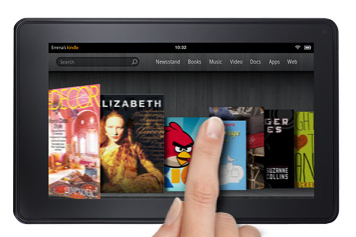Kindle Fire: The commoditization of computing has begun


It is to computing what the original Kindle was to ebook reading, making it easy to buy books and then read them immediately. The Fire also has computing capability baked in, and this total package is the beginning of computing as a commodity for the masses.
Also: CNET live blog | Amazon’s Bezos unveils Kindle Fire; color tablet computer | Amazon’s Kindle Fire; At $199, finally a viable college tablet | Amazon’s Bezos unveils Kindle Touch, $99; Kindle, $79 | CNET: Amazon unveils trio of Kindle e-ink readers | Looks like Amazon took back the lead for dedicated ebook readers
Apple started the movement with the original iPad, but chose a better path for the company in keeping the tablet aimed at the higher end of the market. The move was a great one for Apple, and sales and profits bear that out. It was the beginning of the post-PC era as Steve Jobs is fond of pointing out, where millions of users discovered they didn't need a heavy personal computer to do most of the things they want to do outside the workplace.
Whatever you may feel about the validity of the post-PC era, make no mistake that Amazon has firmly ushered in the "PC as a commodity" era with the Kindle Fire. The little tablet may be focused on life as a content consuming device, but the web browser and Android underpinnings make this a full-blown computer for just two hundred bucks.
As more consumers get exposed to the Kindle Fire and discover that much of what they currently use a computer for can be done on this cheap little tablet, the perception of what a computer really is will begin to change. The realization that much of what they do with a computer outside of the workplace is just a few taps away will radically change the way mainstream consumers buy and use PCs.
The rich user experience coupled with the full online experience is going to impact millions who would otherwise not realize such utility existed. They are going to get exposed to this thanks to the low price of the Kindle Fire, and it is going to change how they compute outside the workplace. The Kindle Fire will rapidly become a commodity, and this is exactly what Amazon intended. Amazon doesn't want to compete with Apple or Android, it wants the Kindle Fire to be a commodity that everyone owns and uses.